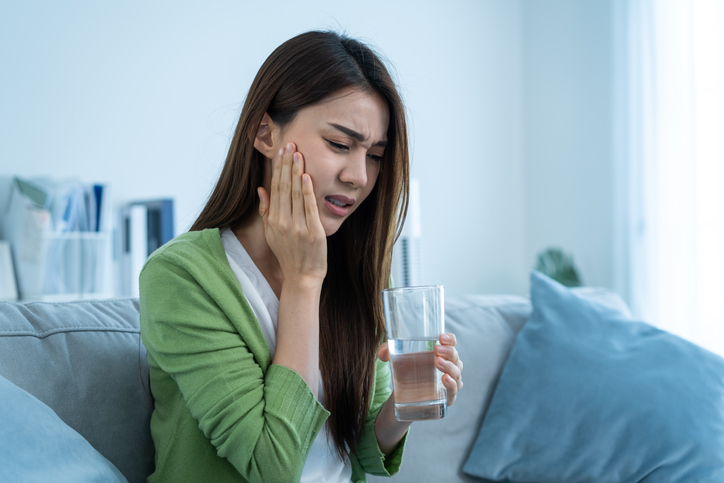
A crown is supposed to fix tooth pain. But sometimes, you may feel pain even after one is placed over your tooth. Learn why this may happen.
Crowns are a mainstay of dental restorations. Made of either porcelain, ceramic, or metal, crowns repair severely decayed or broken teeth, allowing you to have a tooth that looks and functions like your real ones. Crowns are also used to anchor a bridge between missing teeth.
Getting a crown relieves the pain from a cavity and gives you a complete set of functioning teeth. Yet some people experience discomfort even after the crown has been placed. If that’s the case, consult your dentist about what’s causing the pain. But before you do, you can reduce tooth crown pain with some at-home remedies.
What’s causing your tooth crown pain?
Immediately following the placement of the crown, it’s normal to feel minor soreness and sensitivity around the treated tooth. Pain lasting longer than two weeks may indicate one of these four common problems with the crown.
Decay. Because a crown doesn’t replace all of the tooth, the healthy intact portion may become decayed. To remove the cavity, a root canal may be necessary.
Infection. A root canal extracts the nerve-filled pulp in the center of the aching tooth. But if not all nerves are removed, the remaining nerve (or nerves) can become infected, possibly due to the pressure from the crown. An infected nerve will cause pain when biting, sensitivity to hot and cold, swollen gums, and fever.
Ill-fitting Crown. A crown that doesn’t fit properly can lead to pain, especially when you bite down. Such pain usually means the crown is too high. Or, like a regular tooth, the crown may be damaged or cracked. A replacement crown can fix the problem.
Teeth Grinding. Teeth grinding during the night, or bruxism, puts pressure on the crown and can result in pain around the crown. Your jaw muscles may also feel painful upon waking. If you believe you suffer from bruxism, talk to your dentist about a nighttime mouthguard. To relax your jaw muscles before bed, apply a warm, moist compress to your cheeks.
Relieving crown pain
If your crown pain persists after placement, your dentist can determine the cause and propose a fix. You may need a root canal or a new, better-fitting crown. To relieve the pain before your appointment, try the following four tips:
OTC Pain Medications. Over-the-counter pain medications such as ibuprofen (Advil) or acetaminophen (Tylenol) can temporarily relieve the toothache.
Mouth Rinses. To dull the pain, rinse with mouthwash and brush with toothpaste made for sensitive teeth. A mixture of salt and warm water can also relieve pain and inflammation.
Avoid Hot and Cold Foods. Foods and liquids at extreme temperatures can trigger tooth pain, so try eating foods at room temperature.
Treat Bruxism. As mentioned above, teeth grinding is a significant cause of crown pain. Treating your bruxism with a mouthguard is one solution. You can also focus on what may be causing your nighttime teeth grinding, such as daytime stress and anxiety. Meditation can help you relieve stress, so you go to bed peacefully.
Your crown is just like a real tooth, and treating it like a natural tooth will maintain its durability. Brushing and flossing nightly and regular dental checkups will keep your teeth and crown strong and pain-free for many years to come.
Do you have tooth pain?
Schedule an appointment at Espire’s Mission Valley, California, location today! Our highly trained dentists can determine if a crown is causing your tooth pain. Don’t live near our Mission Valley, CA, office? Find one of our other locations near you.
Mission Valley, CA
8989 Rio San Diego Drive
Suite 170
San Diego, CA 92108
